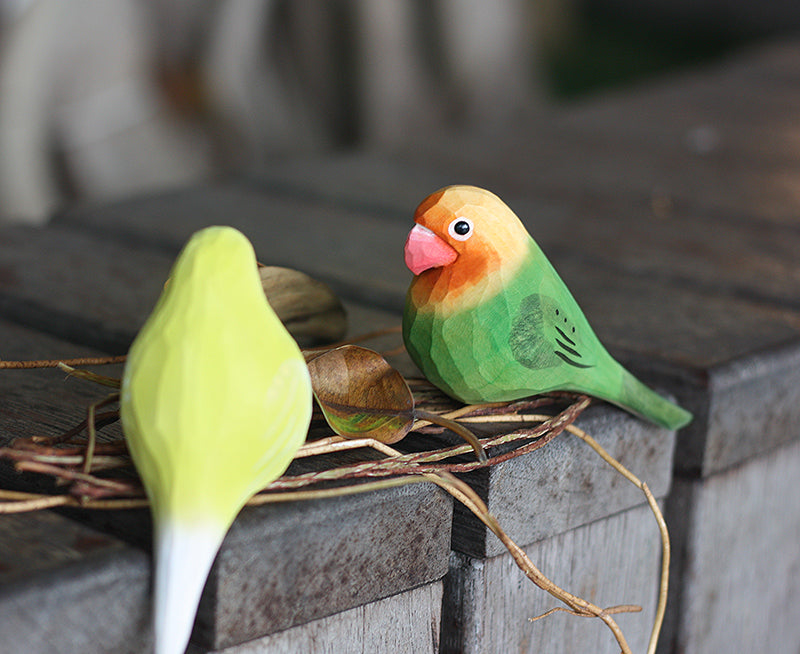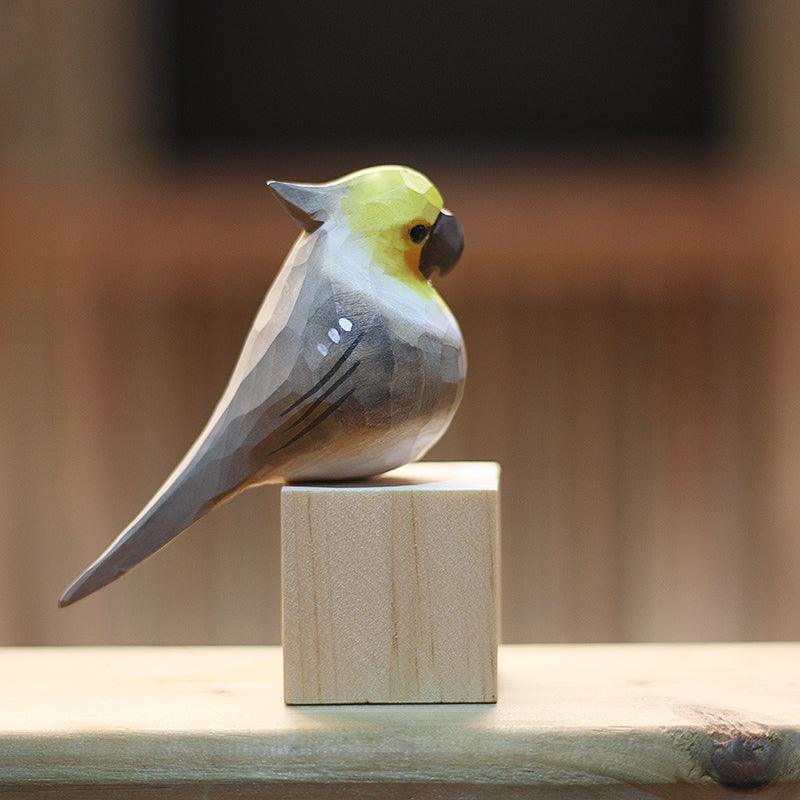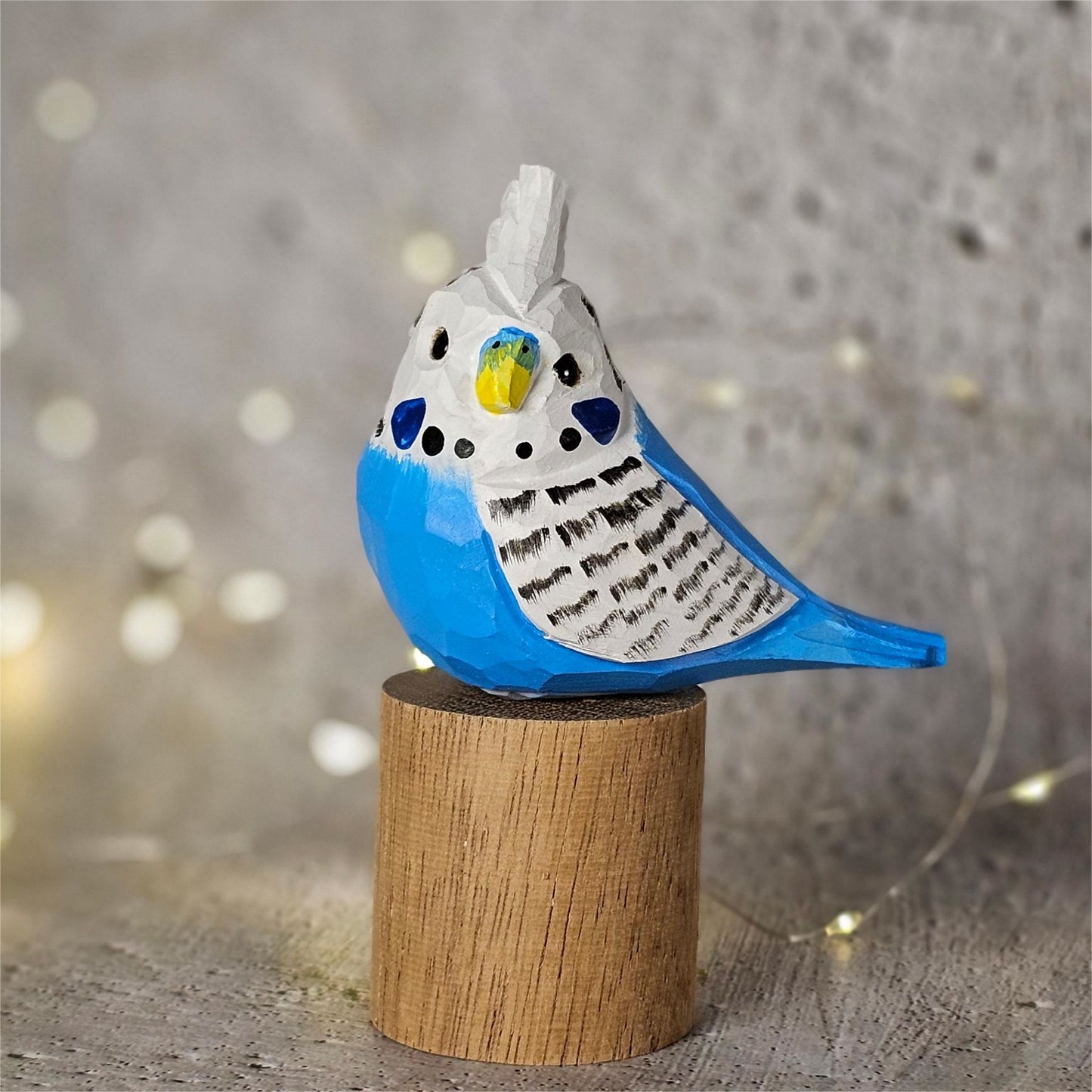
Can Pet Parrots Eat Human Food? What’s Safe (and What’s Dangerous)
Share
Can Pet Parrots Eat Human Food? What’s Safe (and What’s Dangerous)
 Many parrot owners love sharing snacks with their feathered friends—after all, it’s a sweet way to bond. But not all human food is safe for parrots: some can be nutritious, while others are toxic or cause long-term harm. Below’s a clear guide to what’s okay, what’s risky, and key rules to follow.
Many parrot owners love sharing snacks with their feathered friends—after all, it’s a sweet way to bond. But not all human food is safe for parrots: some can be nutritious, while others are toxic or cause long-term harm. Below’s a clear guide to what’s okay, what’s risky, and key rules to follow.1. Human Foods That Are Safe for Pet Parrots (In Moderation)
These foods offer vitamins, minerals, or fiber that complement your parrot’s regular diet (which should mostly be high-quality parrot pellets, fresh veggies, and small amounts of fruit). Always serve them plain, unseasoned, and in small portions (no added salt, sugar, oil, or spices).
| Food Category | Examples | Why It’s Safe |
|---|---|---|
| Fresh Veggies | Carrots (shredded), broccoli, spinach, sweet potato (cooked), peas | Packed with vitamin A (carrots), calcium (spinach), and fiber—supports eye health and digestion. |
| Fresh Fruits | Apples (seedless), bananas, blueberries, mango, papaya | Provide natural sugars for energy and antioxidants—avoid citrus (oranges, lemons) if your parrot reacts to acidity. |
| Whole Grains | Cooked brown rice, quinoa, plain oatmeal, whole-grain bread (no butter) | Offer complex carbs and fiber—great for parrots that need extra energy (like active cockatiels). |
| Lean Proteins | Cooked chicken (shredded, no salt), hard-boiled egg (mashed, no salt) | Rare treats (1–2 times a month!) for protein—supports muscle health, especially for larger parrots like African Greys. |
2. Human Foods That Are Dangerous for Pet Parrots (Never Feed These!)
Some human foods contain toxins, high levels of fat/sugar, or compounds that parrots can’t digest. Even small amounts can cause illness, organ damage, or death.
| Dangerous Food | Why It’s Harmful |
|---|---|
| Avocado | Contains persin, a toxin that causes heart damage, breathing issues, or death in parrots. |
| Chocolate/Caffeine | Chocolate has theobromine; caffeine (coffee, tea, soda) overstimulates parrots’ hearts—both lead to seizures or cardiac failure. |
| Onions/Garlic | Destroy red blood cells, causing anemia (weakness, pale feathers, lethargy). |
| Salt/Sugar | Too much salt leads to dehydration or kidney damage; sugar causes obesity, diabetes, or fatty liver disease. |
| Alcohol | Even a drop depresses parrots’ nervous systems—causes loss of coordination, coma, or death. |
| Fruit Seeds/Pits | Apple seeds, cherry pits, peach pits contain cyanide—always remove them before serving fruit. |
| Avocado, Rhubarb Leaves | Rhubarb leaves have oxalic acid, which blocks calcium absorption and damages kidneys. |
3. Key Rules for Feeding Human Food to Parrots
Even safe foods can cause problems if not given correctly. Follow these to keep your parrot healthy:
- Pellets First, Snacks Second: Human food should be 5–10% of your parrot’s diet—never replace their regular pellet food (pellets are formulated to meet all their nutritional needs).
- No Seasonings: Avoid salt, pepper, garlic powder, butter, sauce, or any processed additives. Parrots’ bodies can’t handle these—even a sprinkle of salt is too much.
- Fresh Is Best: Don’t feed moldy, spoiled, or cooked leftovers (they may have bacteria or hidden seasonings).
- Watch for Reactions: After giving a new food, check for signs of upset (diarrhea, vomiting, loss of appetite) for 24 hours. If you see issues, stop feeding it.
4. Common Myths Debunked
-
Myth: “Parrots love bread, so it’s fine to feed them often.”
Fact: White bread is empty calories (no nutrition), and moldy bread has toxins. Only offer small pieces of whole-grain bread occasionally.
-
Myth: “Sharing my pizza crust is harmless.”
Fact: Pizza crust has salt, oil, and sometimes garlic/onion (in sauce)—all risky for parrots.
Feeding your parrot human food can be a fun bond, but safety comes first. Stick to the safe options, keep portions small, and always prioritize their specialized pellet diet. If you’re unsure about a food, ask your vet—they’ll know what’s best for your parrot’s species (e.g., budgies vs. African Greys have different needs).
Have you ever shared a safe snack with your parrot? Tell us what they love most in the comments!











































